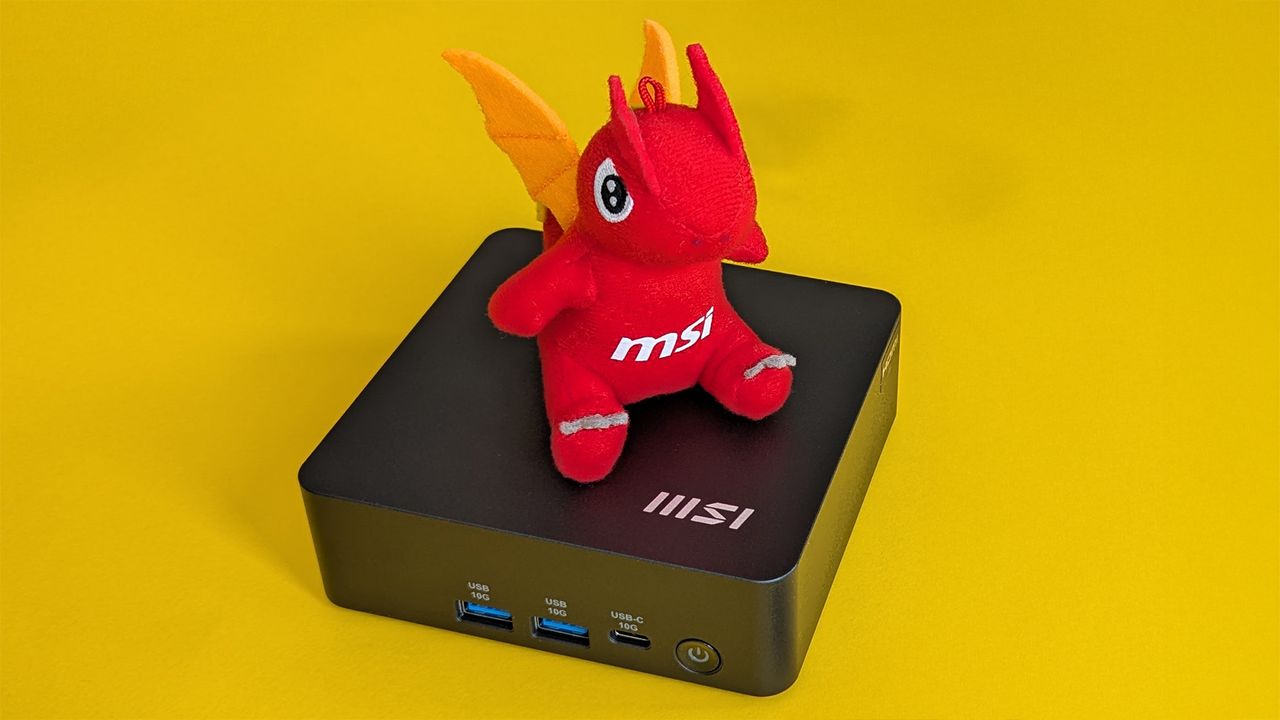
A prominent brand among PC gamers, MSI has offered some of the best value graphics cards and motherboards for years. I've used its hardware more times than I count; in my custom-built desktops and those made for friends, but the brand has still expanded its scope more than I realized.
I'm aware of its budget-centric gaming laptops; they're popular during almost any sales event, such as Amazon Prime Day or Black Friday, because they offer an affordable introduction for those who otherwise don't have a substantial budget. Still, I had overlooked the manufacturer's efforts in the mini PC space until it revealed some intriguing new MSI "Cubi" models at CES 2025.
MSI invited me to its London office to hear details of exactly that: its two new AI-centric mini PCs now functional and running Windows 11, with a sample to tinker with and some insight into why the company is expanding its Cubi range with the MSI Cubi NUC A1 1UM and AI+ 2MG.

Intel introduced the concept of a NUC (Next Unit of Computing) mini PC in 2013, using its low-power "Sandy Bridge" mobile processors, and continued to iterate on the design until ASUS acquired a non-exclusive license to Intel's NUC designs. Now, there are examples of mini PCs that cater to specific needs and even venture beyond Intel chips.
Many brands have updated their naming trends, but MSI remains traditional, sticking with NUC and utilizing Intel's "Lunar Lake" Core Ultra mobile processors in its Copilot+ PC effort, the Cubi NUC AI+ 2MG, and "Meteor Lake" equivalents in the Cubi NUC AI 1UMG, though both are configurable for component changes.
At a glance, the concept remains familiar: a blocky, miniature cube equipped with Thunderbolt 4 USB-C ports and running Windows 11, offering the same level of versatility as any productivity-centric laptop or desktop PC, albeit in a tiny form. However, there are a few features that MSI hopes will make these mini PCs stand out from the crowd.
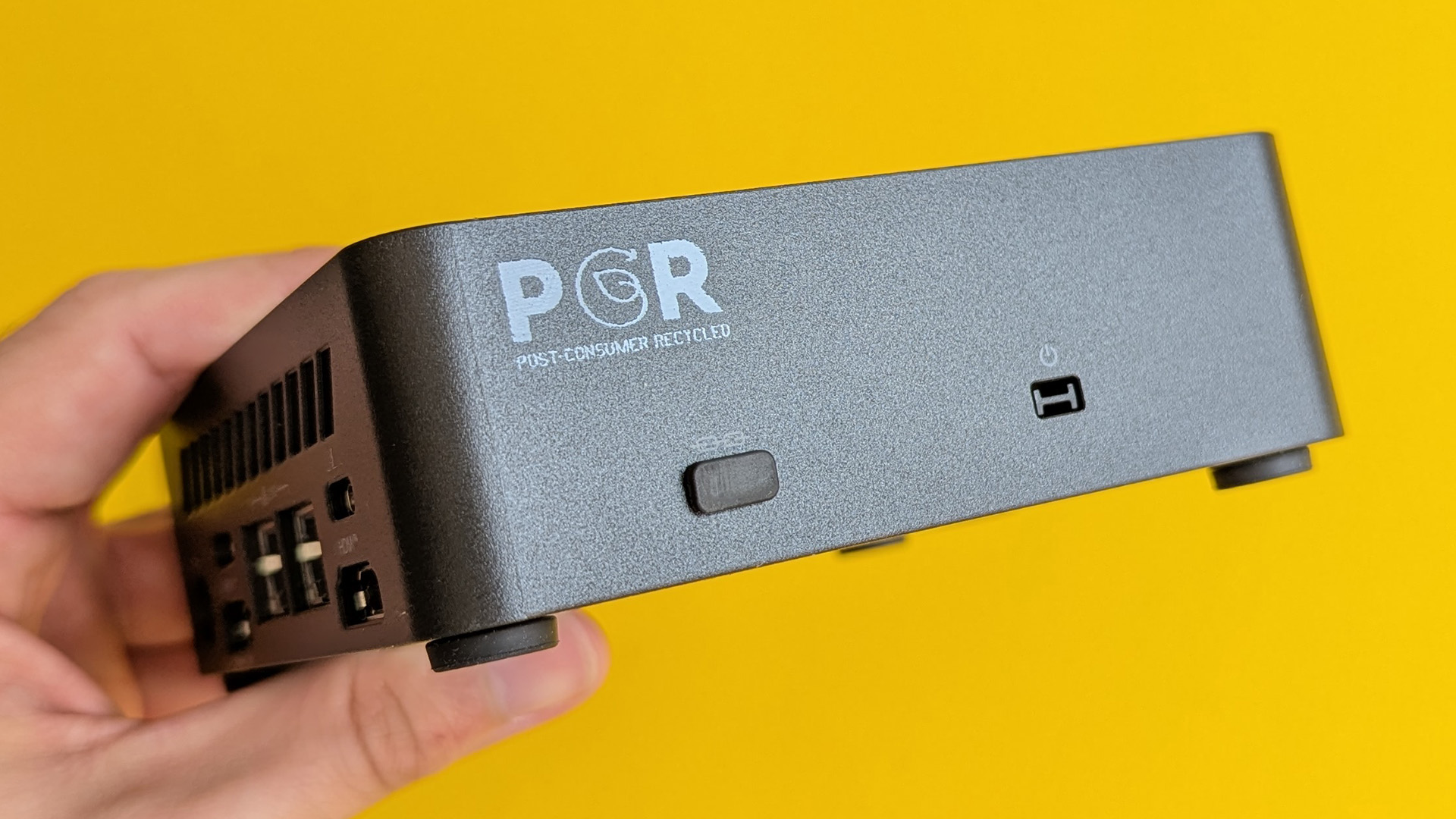
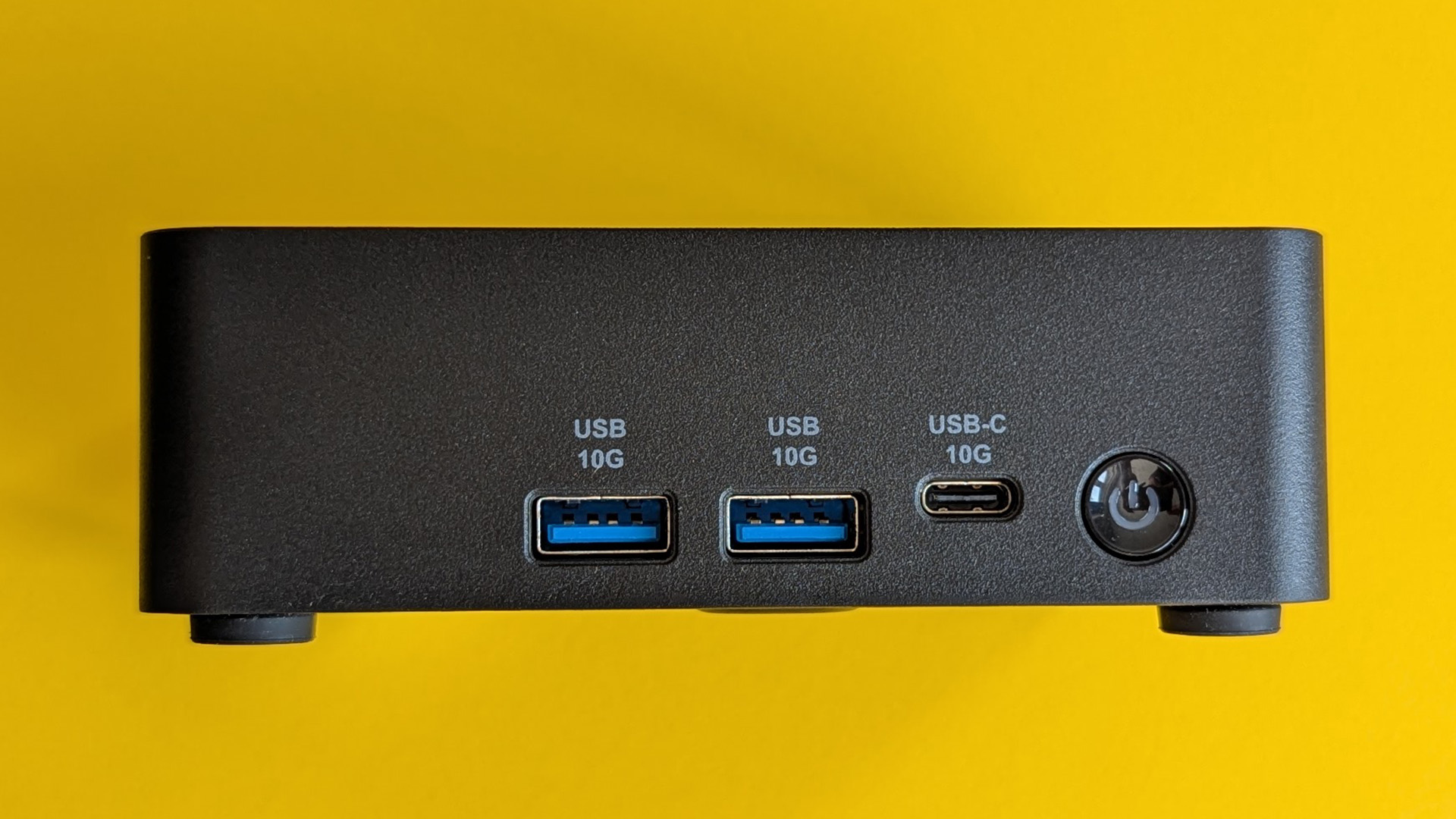
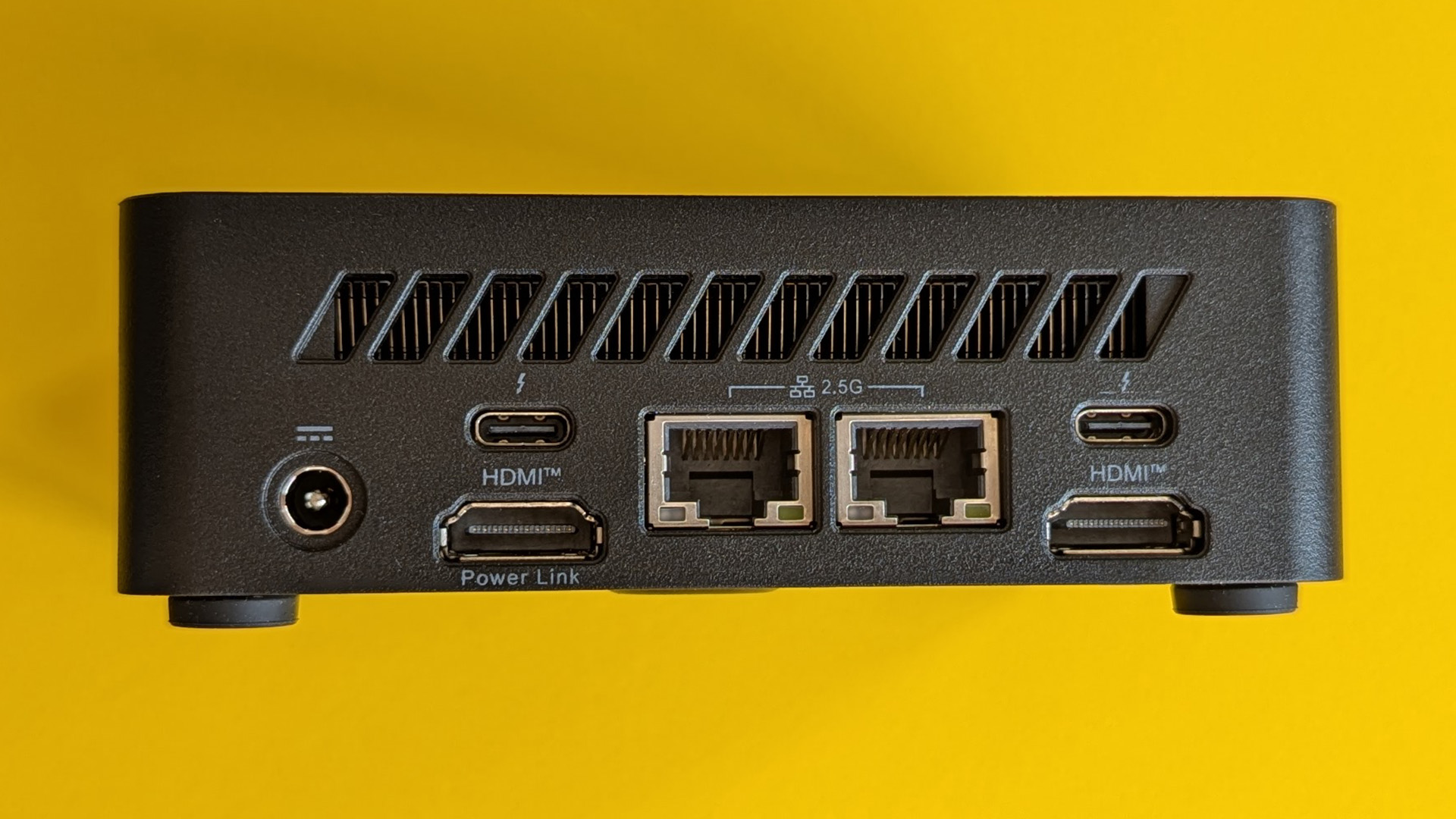
First up is the sustainability angle since both of the Cubi NUC models are built with PCR (Post-Consumer Recycled) materials, and, according to Gökhan Bodur, the jovial head of MSI UK marketing, the packaging will later follow suit to remove all instances of plastic bags and ties inside. It sounds like an obvious move for the enterprise sector, but I'm still celebrating every example of responsible manufacturing when I see it.
Measuring just 0.826 liters, the Cubi NUC AI+ 2M sets a new standard for mini PCs.
MSI (January 7, 2025)
Then, the pint-size Cubi NUC AI 1UMG (0.51 L) and Cubi NUC AI+ 2MG (0.826 L) come with a cute, detachable power button that makes it much more viable to attach the mini PCs to the back of a monitor with an included VESA mount. To be fair, the Cubi NUC already has a power-link option via HDMI to wake the mini PC through a compatible MSI-branded monitor, and the dual 2.5G Ethernet ports on both models will likely offer a "Wake on LAN" alternative, like other NUCs.
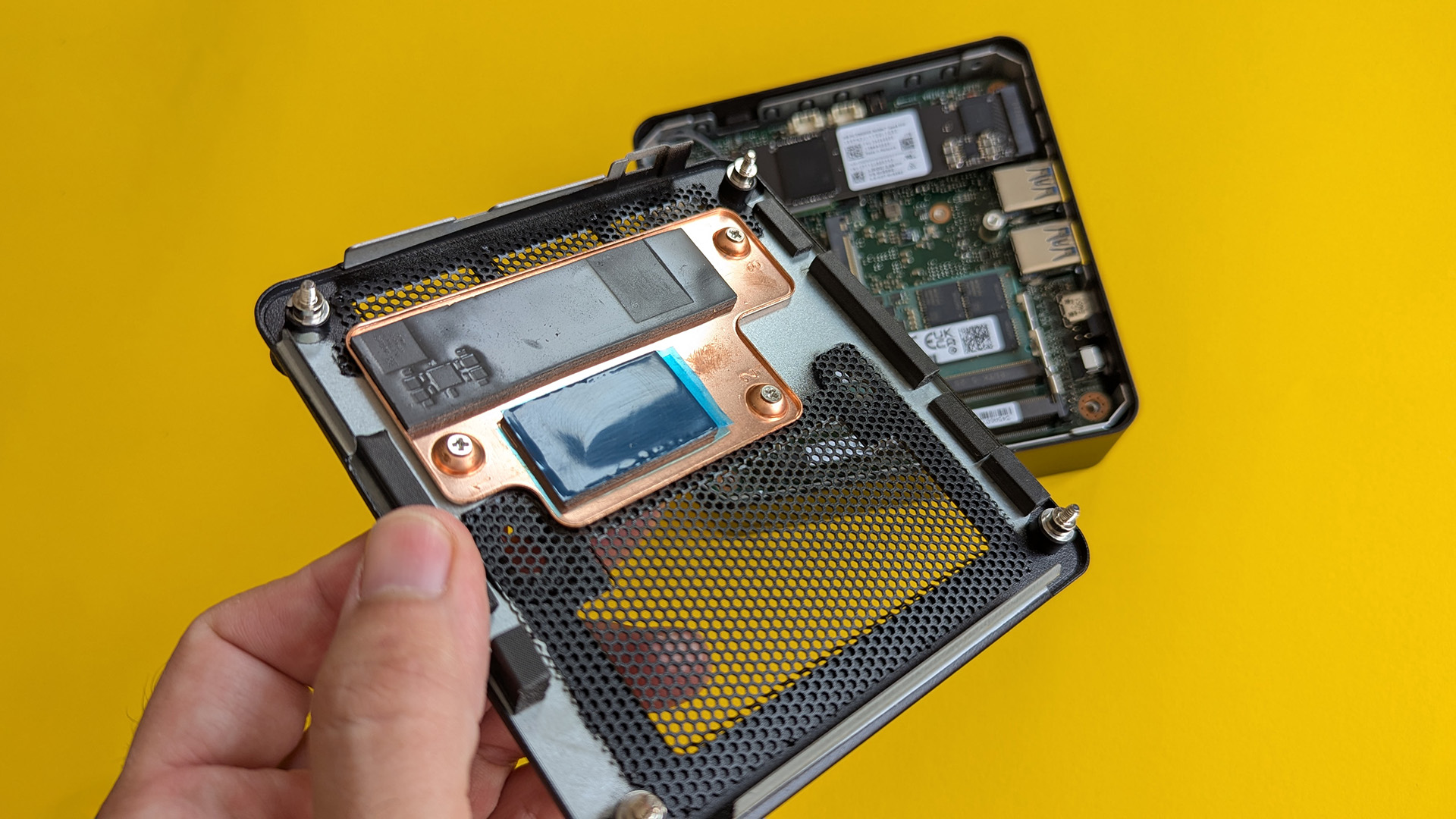
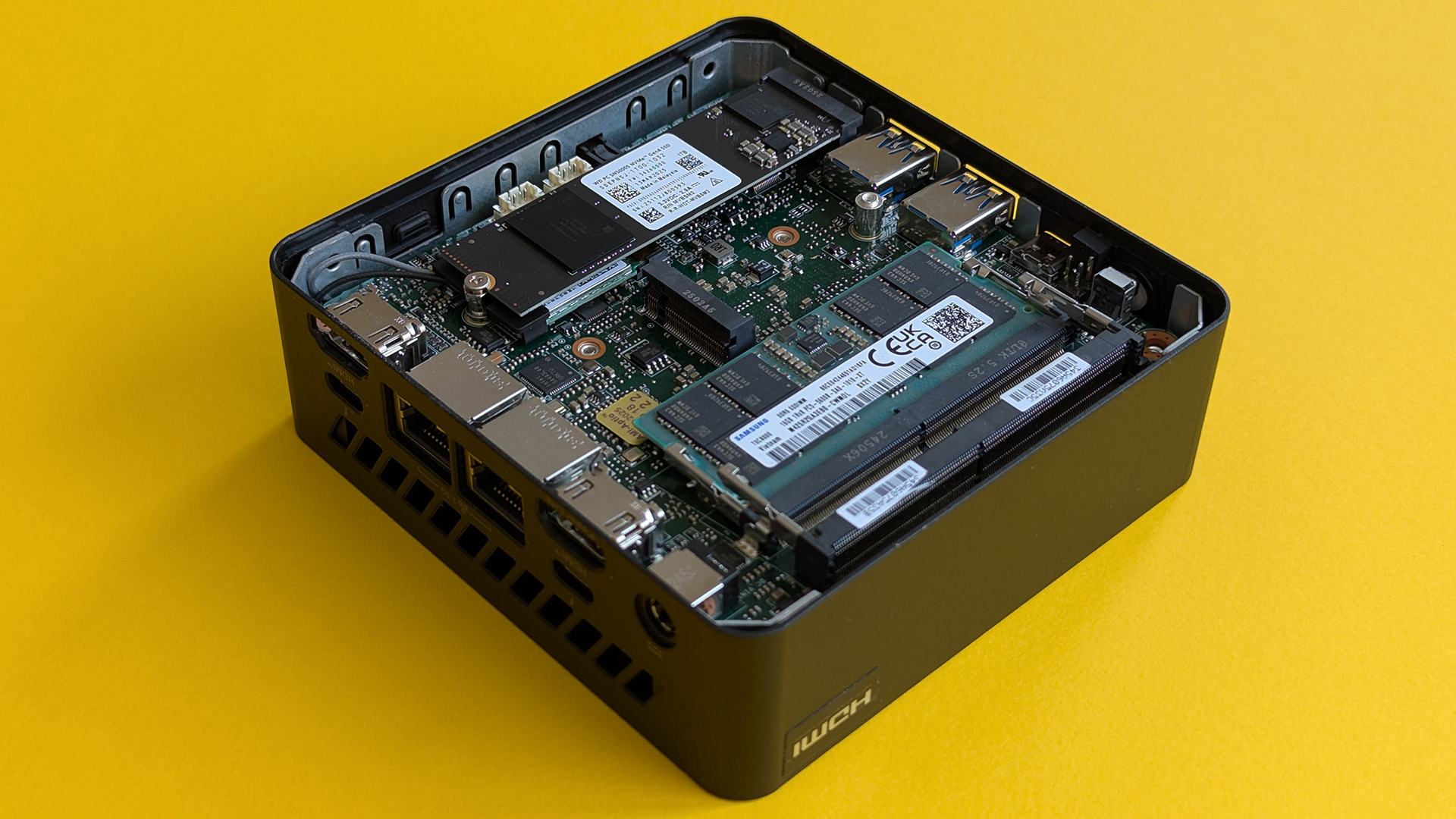
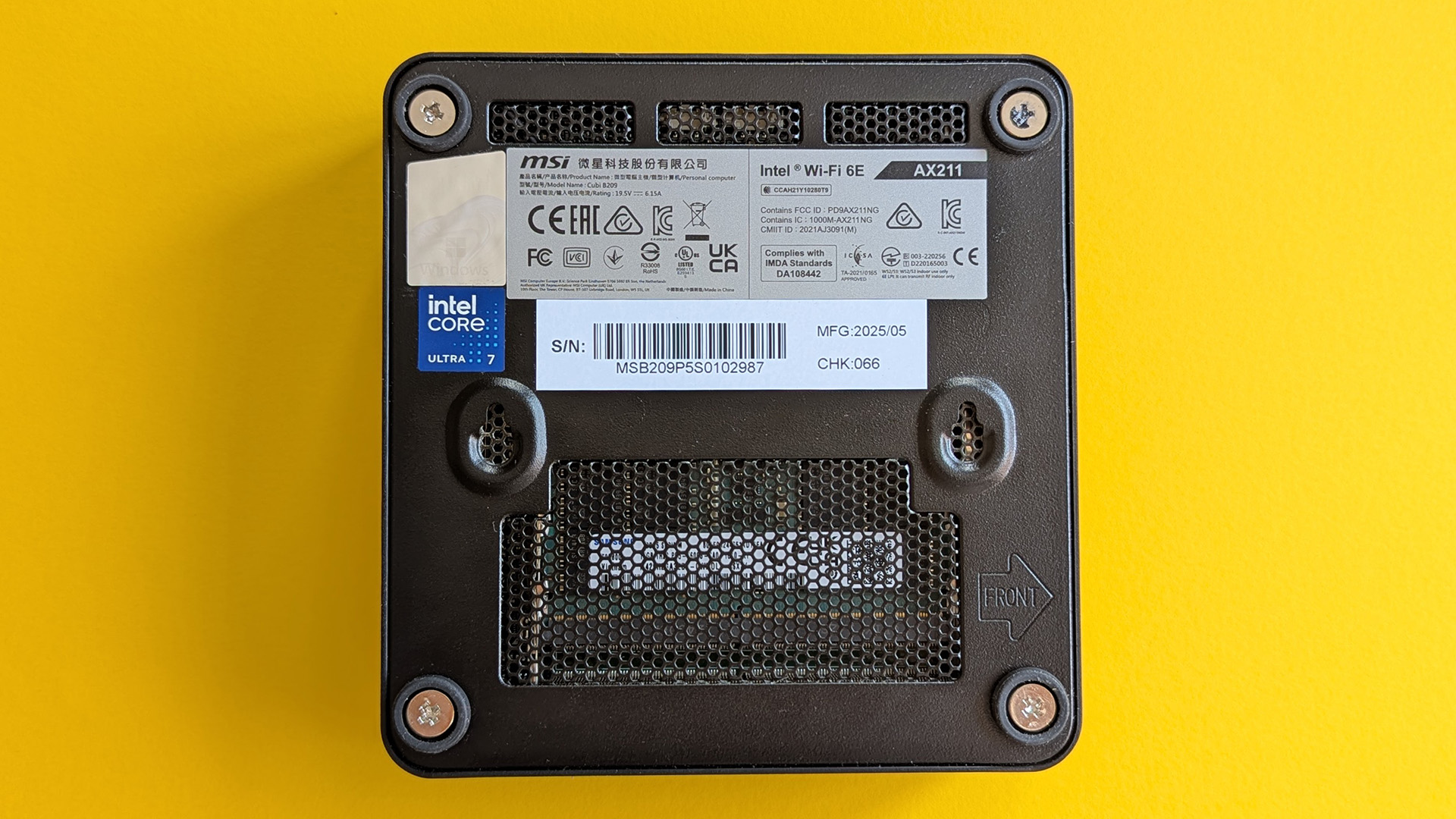
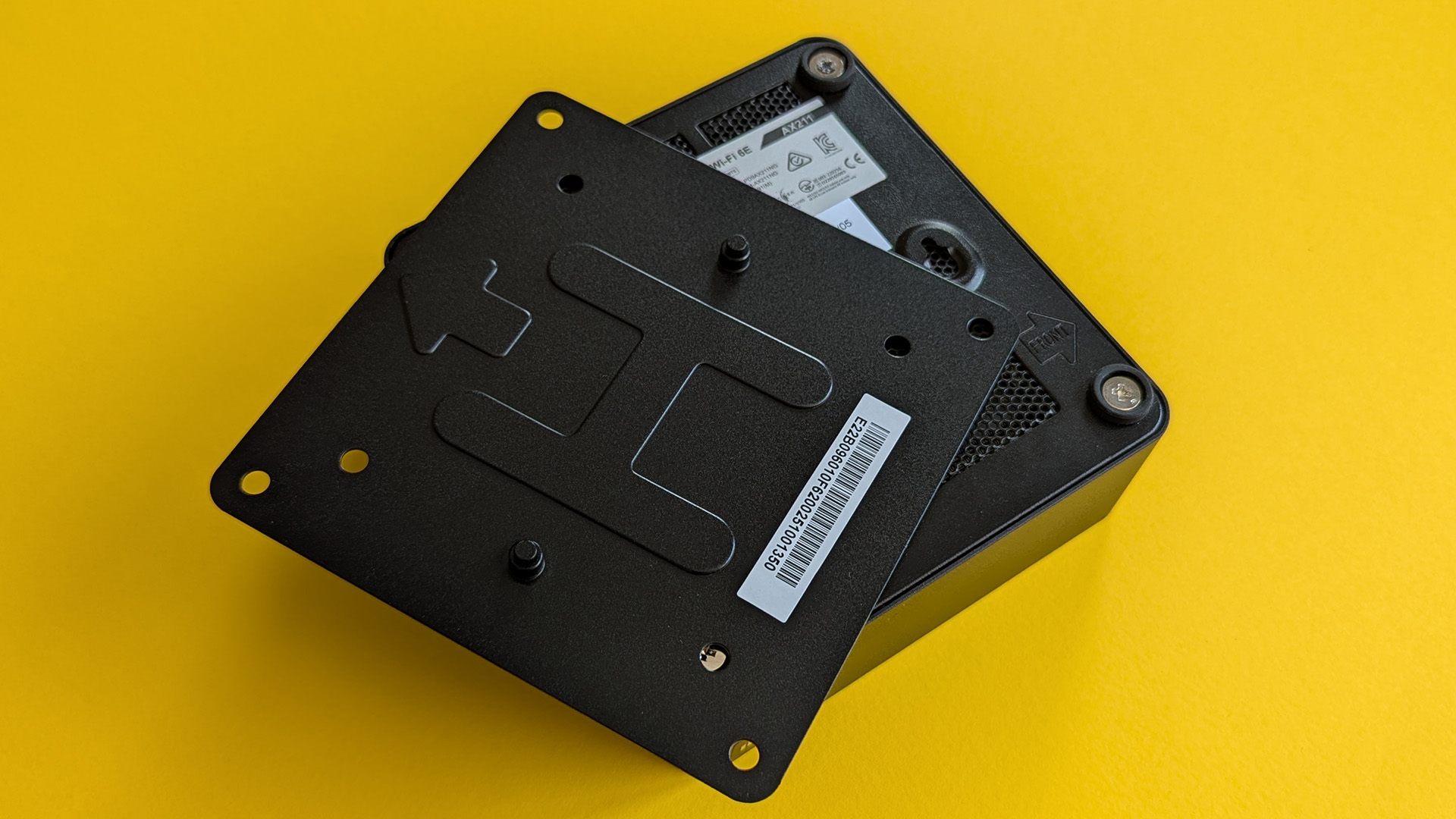
Nevertheless, it's easy enough to attach the power button to the side port of the Cubi NUC, and it's the route I'd likely take if I were setting one up in the kinds of small business or education settings that MSI is targeting. The button itself has a sticky pad, so it can still be mounted out of sight without being out of reach — a useful addition that I'd like to see in more consumer mini PCs.
Finally, at least on the Cubi NUC A1 1UMG, you can connect four external monitors via the dual HDMI and Thunderbolt 4 ports. It's a big effort for a mini PC, but it has its reasons.
Of course, you could set up a typical workspace with screens dedicated to any particular app or metric tracker, but the Cubi NUCs are also targeting digital signage. In that, you could display four individual menus at a restaurant, or run a multi-screen ordering system. It's a flexible little PC, but a reminder that it's targeting enterprise markets first, not your average PC consumers.
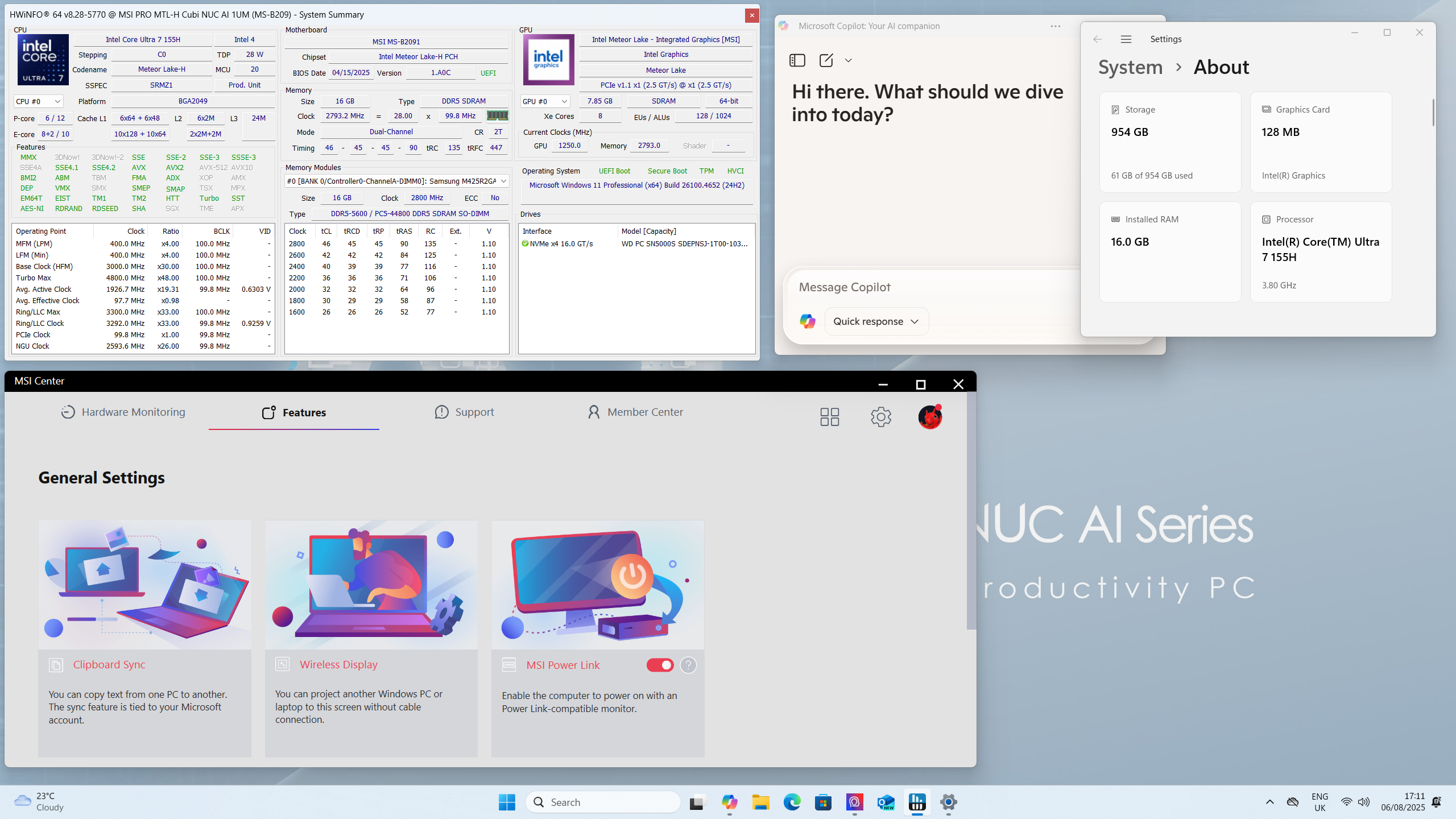
Then again, there's nothing really stopping anyone from buying a Cubi NUC from MSI, particularly if you're craving a Copilot+ mini PC similar to the Beelink SER9, existing in a category that's already extremely slim. It won't be the cheapest thing in the world, but one ready-made $949.99 variant of the Cubi NUC AI+ 2MG features the same Intel Core Ultra 7 258V chip as MSI's Claw 8 AI+ handheld, a category leader in its own right.
For anyone else interested in replacing their full-size desktop with a pint-sized alternative, the previous-generation Cubi NUC A1 1UMG is priced at $749.99 at Best Buy with 16GB of RAM and a 1TB SSD paired with an Intel Core Ultra 5 125H processor, but configurable with the same Core Ultra 7 155H that featured in Lenovo's Slim 7i 14 (Gen 9) — one of my all-time favorite laptops. While the memory and storage are generous, it still stands in the shadow of its more capable Cubi NUC AI+ 2MG sibling, but it has its own target audience.
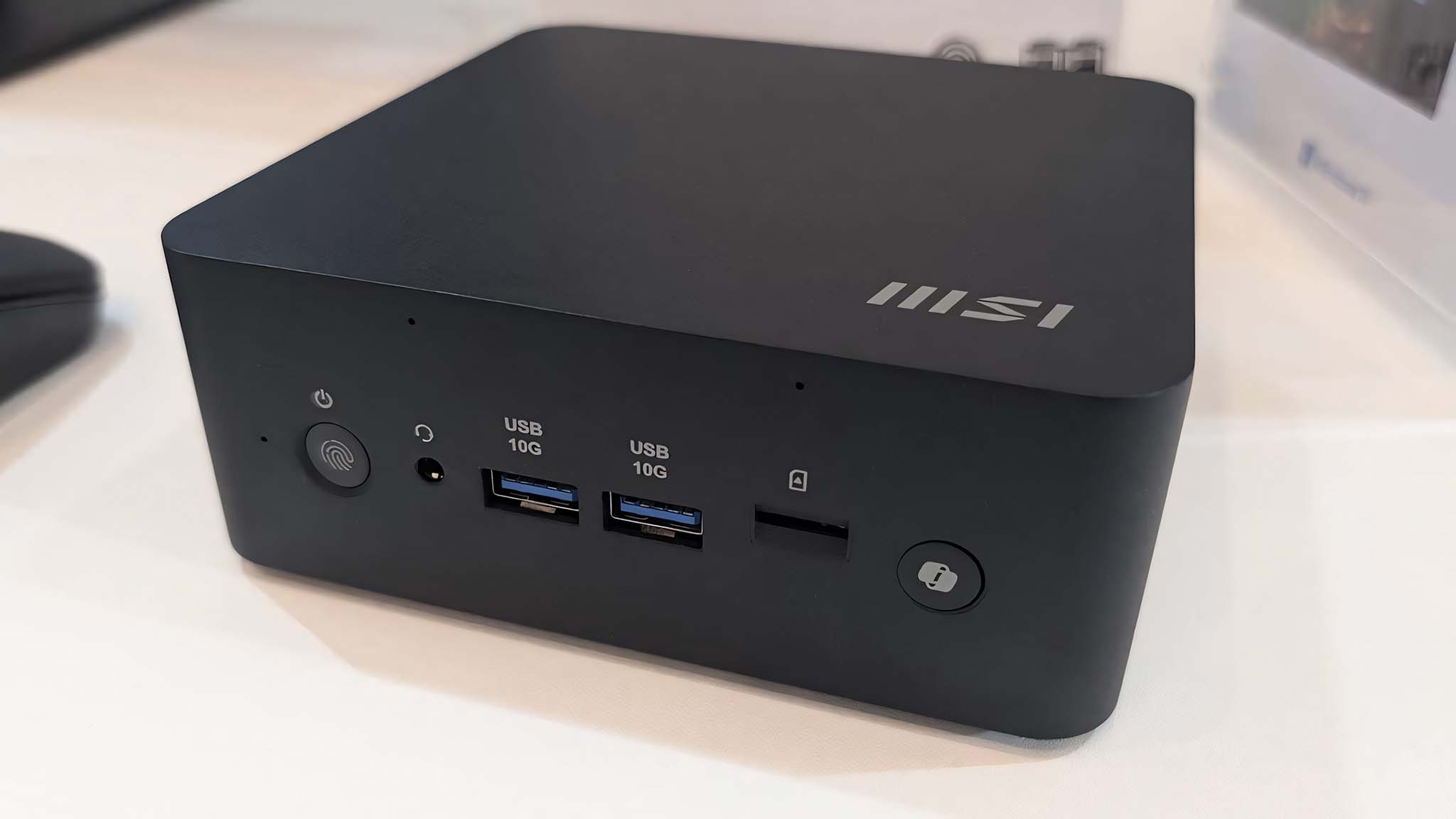
It'll be tempting to recommend the Copilot+ PC-certified Cubi NUC AI+ 2MG if it were ever to go on sale, particularly after I was shown MSI's rigorous testing process that ensures each mini PC should last for years. It's reassuring for a market that I'm not familiar with seeing MSI explore.
If a regular consumer were to spring for the AI+ 2MG, they'd get a built-in microphone, speakers, fingerprint reader via the on-device power button, and even a dedicated Copilot button, if they really wanted those.
Either way, I'm just happy to see more Copilot+ PC options that aren't strictly laptops. Anyone who recognizes my byline will know that I'm a big advocate for mini PCs; I'm adamant that they're a better solution than semi-permanently leaving a laptop attached to a docking station.
That, and it's satisfying seeing products make it out of CES 2025 and into full production, rather than disappearing into the ether. Still, if either of these new mini PCs deserves highlighting, it's the Cubi NUC AI+ 2MG, and I hope it'll succeed well enough to warrant some generational follow-ups from MSI.







